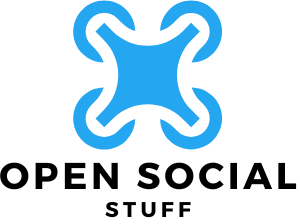In a world where computers are getting smarter by the second, quantum programming languages are the new kids on the block, ready to revolutionize the tech landscape. Imagine a realm where bits become qubits and your programming skills can manipulate the very fabric of reality—sounds like a sci-fi movie, right? But this isn’t just a plot twist; it’s the future of computing, and it’s happening now.
Table of Contents
ToggleOverview of Quantum Programming Languages
Quantum programming languages are designed specifically for quantum computing, utilizing the principles of quantum mechanics. These languages enable programmers to create algorithms that leverage qubits, which operate differently from classical bits.
Various quantum programming languages are available, including Qiskit, Cirq, and Q#.
- Qiskit: Developed by IBM, Qiskit provides an open-source framework for quantum computing. Users can build quantum circuits and run them on simulators or real quantum devices.
- Cirq: Created by Google, Cirq focuses on designing quantum algorithms for noisy intermediate-scale quantum (NISQ) computers. Its strength lies in its ability to facilitate experimentation with quantum logic gates.
- Q#: Provided by Microsoft, Q# integrates smoothly within the Microsoft Quantum Development Kit. It offers tools for developing and running quantum algorithms in a structured environment.
These languages come with specific features that enhance quantum algorithm development. Certain languages prioritize ease of use, while others favor performance optimization or flexibility in designing complex circuits.
Functionality remains a key aspect of these programming languages. Debugging, simulation, and visualization tools aid programmers in validating their quantum algorithms effectively.
Adoption rates for quantum programming languages are increasing as the quantum technology landscape evolves. Interest from academia and industry drives a growing collection of resources and documentation, further supporting community engagement.
As quantum technology continues to advance, programming languages designed for this paradigm are evolving. Modern developments focus on user-friendly interfaces and high-level abstractions, making quantum computing accessible to a broader audience.
Popular Quantum Programming Languages
Several quantum programming languages are gaining traction, each offering unique features that cater to different aspects of quantum computing.
Qiskit
Qiskit stands out as an open-source quantum framework developed by IBM. It simplifies the creation and manipulation of quantum circuits. Users appreciate its comprehensive functionality, which includes components for circuit execution, simulation, and visualization. The platform supports various backends, facilitating access to real quantum computers. Its extensive documentation and community support enhance accessibility for developers. Additionally, Qiskit embraces a modular architecture, allowing customization and flexibility in building quantum algorithms.
Cirq
Cirq is another prominent quantum programming language, crafted by Google to cater to noisy intermediate-scale quantum computers. This language emphasizes the design and analysis of quantum algorithms tailored to real-world applications. Cirq provides tools and libraries that help model quantum circuits efficiently. Developers value its ability to work seamlessly with Google’s quantum hardware. Furthermore, a strong focus on debugging and optimization aids in overcoming common challenges in quantum computing.
Quipper
Quipper excels as a high-level quantum programming language focused on quantum algorithms. Designed with performance in mind, it allows developers to express complex quantifications succinctly. Features like automated circuit generation and support for various quantum gates make it a powerful tool for quantum computation. Developers benefit from Quipper’s functional programming approach, which improves the clarity and maintainability of code. The integration with classical programming environments broadens its applicability, making it appealing for both academic and industrial purposes.
Key Features of Quantum Programming Languages
Quantum programming languages incorporate unique features fundamental to quantum computing, enabling enhanced algorithm development and practical applications.
Quantum Gates and Circuits
Quantum gates serve as the building blocks of quantum circuits. These gates manipulate qubits, performing operations like rotation and entanglement. By combining gates, programmers construct quantum circuits tailored to specific algorithms. Qiskit, Cirq, and Q# provide libraries for efficiently designing these circuits, allowing seamless execution on various quantum devices. Integrated tools aid in circuit visualization, simplifying complex processes for better understanding. Additionally, debugging features assist in optimizing circuits, ensuring desired outcomes while minimizing errors.
Superposition and Entanglement
Superposition allows qubits to exist in multiple states simultaneously, significantly enhancing computational capabilities. This principle enables quantum algorithms to explore numerous possibilities at once. Furthermore, entanglement links qubits, creating correlations that can be harnessed for powerful quantum computations. Languages like Qiskit and Cirq exploit these phenomena, offering functions that facilitate the creation of entangled states. The ability to program using superposition and entanglement leads to increased efficiency in solving complex problems, showcasing the transformative potential of quantum programming languages in various fields.
Use Cases of Quantum Programming Languages
Quantum programming languages facilitate various applications across multiple fields, demonstrating their versatile capabilities in solving complex problems.
Quantum Computing Research
Quantum computing research benefits from quantum programming languages by enabling scientists to design and test novel algorithms. Researchers utilize languages like Qiskit and Cirq to simulate quantum processes and investigate quantum supremacy. They focus on the exploration of quantum error correction techniques to enhance reliability. Researchers also leverage high-level languages like Quipper for succinct expression of complex quantum algorithms, making experimentation more efficient. The collaborative nature of these tools ensures progress in understanding quantum phenomena and developing new computational models.
Cryptography
Cryptography experiences a significant transformation with quantum programming languages. These languages support the development of quantum cryptographic protocols, like quantum key distribution, ensuring secure data transmission. Q# and others provide frameworks to implement and analyze quantum-safe algorithms that resist attacks from quantum computers. Secure communication channels benefit from the unique properties of quantum mechanics that these languages can effectively harness. Innovations in this area promise enhanced security in fields such as finance and information technology.
Optimization Problems
Quantum programming languages excel in addressing optimization problems across various industries. Industries like logistics and finance utilize quantum algorithms to solve complex optimization tasks rapidly. Qiskit’s optimization module allows developers to model and solve these problems effectively. They apply concepts such as Grover’s algorithm to speed up searches in unstructured databases. The ability to handle numerous variables simultaneously enables better decision-making and resource allocation, proving essential for global competitiveness.
Quantum programming languages are paving the way for a new era in computing. As they continue to evolve they’re making quantum technology more accessible and practical for a wide range of applications. The unique capabilities offered by these languages empower developers to harness the power of qubits and explore complex problem-solving approaches.
With growing interest from both academia and industry the future of quantum programming looks promising. As tools and resources expand users can expect to see even more innovative solutions emerge from this cutting-edge field. Embracing these advancements will be crucial for anyone looking to stay ahead in the rapidly changing landscape of technology.





